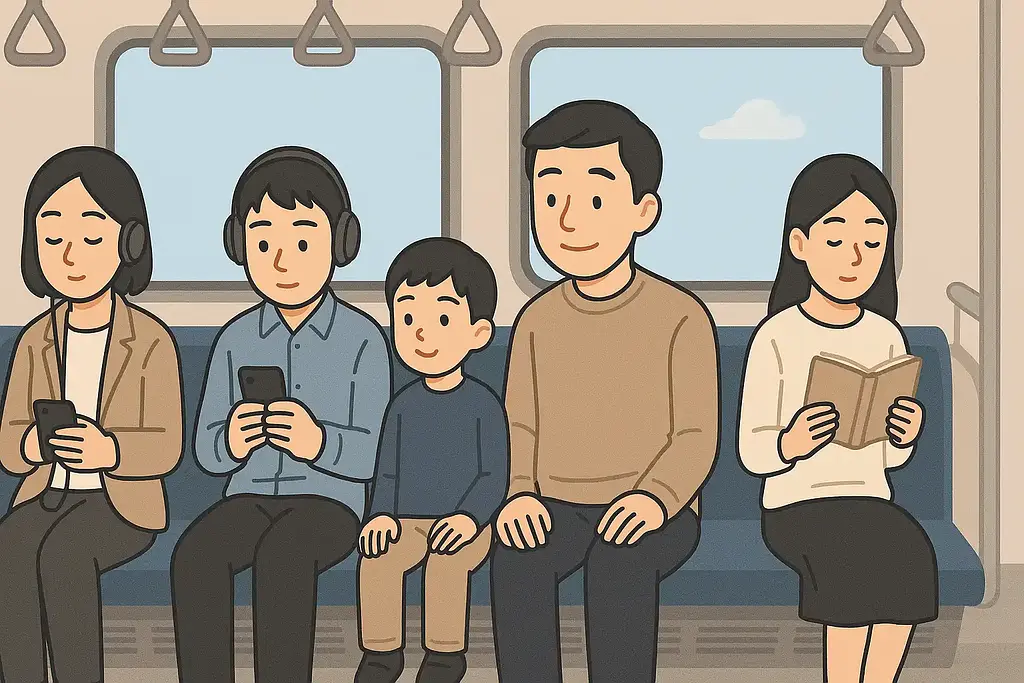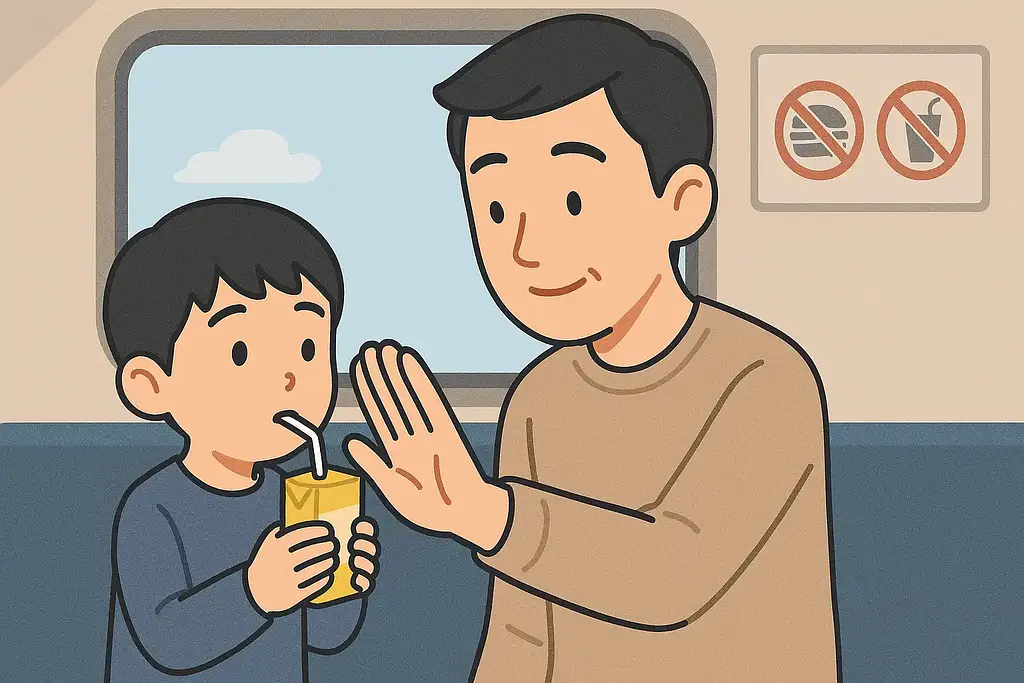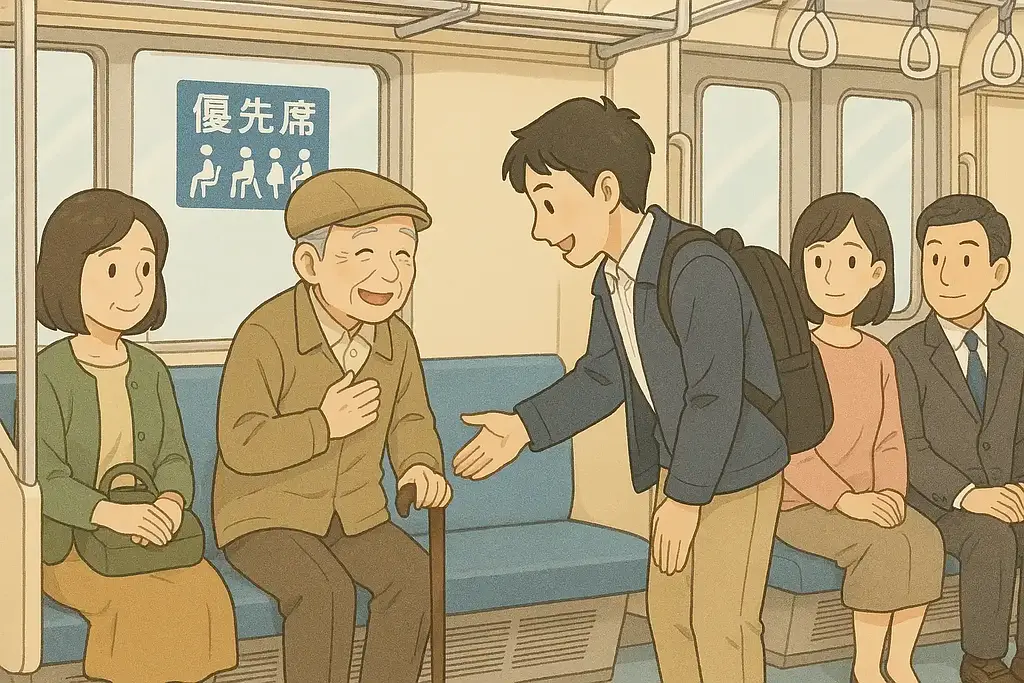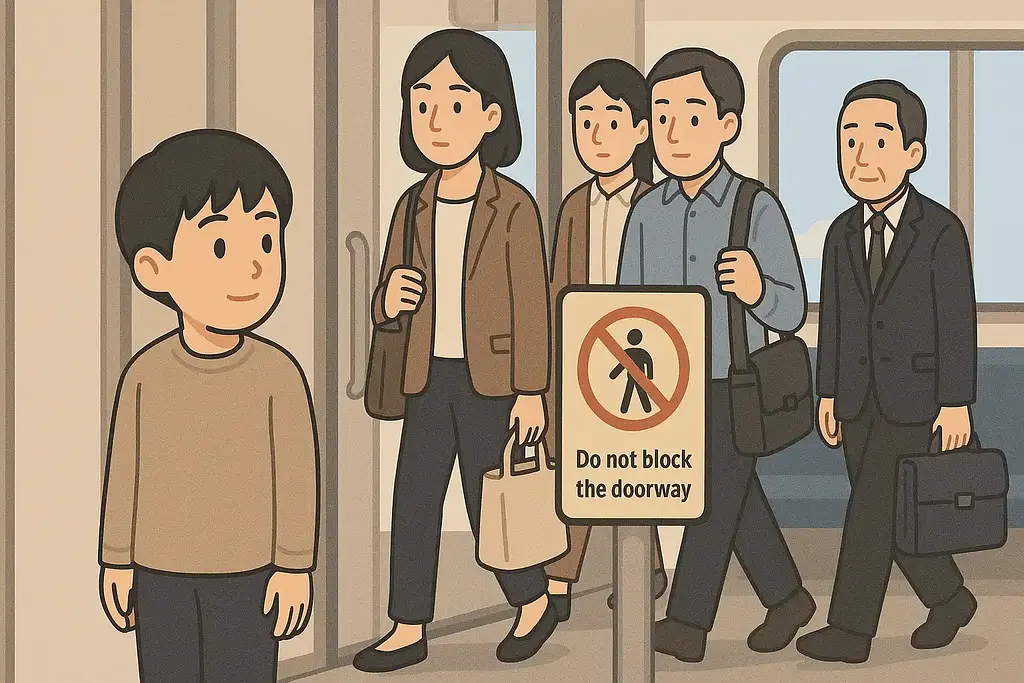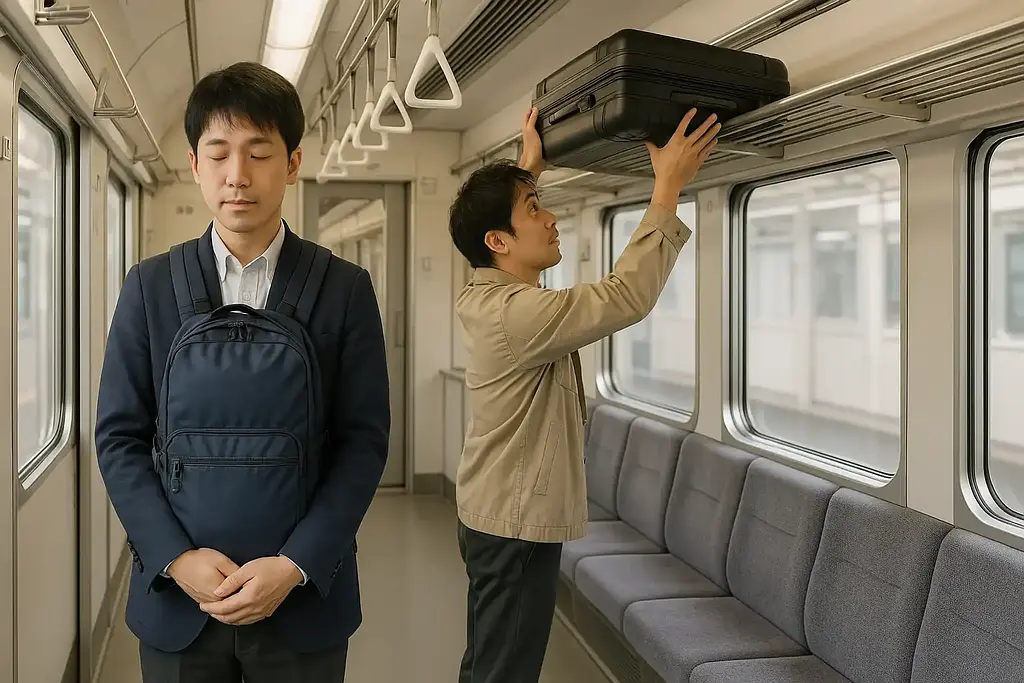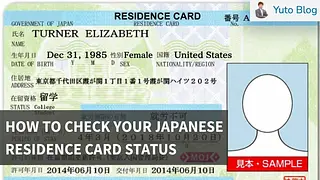When living or studying in Japan, using the train is practically essential. However, not everyone fully grasps the necessary etiquette for riding trains—especially for kids and newcomers to Japan. In Japan, people place a high value on order and politeness in public spaces. That's why understanding and following train etiquette not only helps you blend in better but also shows respect to those around you.
Here are 8 basic train etiquette rules in Japan, presented in a lively and easy-to-understand way—perfect for children or anyone just getting used to life in the land of the cherry blossoms.
1. Line Up When Waiting for the Train
At train stations in Japan, there are clear lines marked to guide passengers to queue up neatly. Everyone stands in an orderly fashion, without pushing or shoving. This ensures boarding and disembarking go smoothly and safely.
👉 Tip: Wait for all passengers inside to get off before starting to board the train.
2. Keep Quiet on the Train
Japanese people highly value a quiet atmosphere on trains. Talking loudly, laughing boisterously, or listening to music without headphones is considered rude. On trains, people often read books, use their phones silently, or simply rest.
👉 Quick Tip: If you're with young children, remind them to speak softly and not run around on the train.
3. Turn Off Phone Sounds or Set to Silent Mode
When boarding the train, remember to switch your phone to silent mode (マナーモード - "manner mode"). Especially in priority areas (seats for the elderly, pregnant women, people with disabilities...), you should turn off your phone completely to avoid interfering with medical devices like pacemakers.
4. No Eating or Drinking on the Train
Eating or drinking on regular trains is generally seen as inappropriate. Some special trains (like tourist trains or shinkansen) may allow it, but for local or standard trains, it's best to avoid it.
👉 Exception: Young children can drink water or milk, but make sure to keep it clean and avoid spilling on seats or the floor.
5. Give Up Your Seat to Those in Need
Trains always have priority seats (優先席 - "yūsen seki"). If you're sitting in this area and see an elderly person, pregnant woman, someone with a disability, or a person with young children boarding, take the initiative to stand up and offer your seat. It's a small gesture with a big impact!
6. Don't Block the Doors
When the train stops at a station, passengers board and disembark quickly. So, standing in the way of the doors is obstructive and considered rude. Move inside the train after boarding and avoid standing in the doorways unless necessary.
7. Don't Let Luggage Take Up Space
If you're carrying a backpack or large bag, wear it on your front or keep it close to your body. Avoid letting bags take up seats or block the aisles.
👉 Suggestion: Train cars have overhead luggage racks—you can use them to store your items.
8. Be Polite and Friendly
On the train, always behave politely and courteously. Just a small smile or a nod of thanks when someone gives up their seat for you can make the journey more pleasant for everyone.
Conclusion
Following these train etiquette rules in Japan isn't just about culture—it's about building an orderly and civilized society. These habits should be taught from a young age so children can quickly adapt to their environment and learn to respect the community.
If you're living, studying, or working in Japan, don't forget to share these little rules with your kids or loved ones!
Want to learn more about life rules in Japan or easy Japanese lessons? Don't forget to visit YutoJP.com for the latest updates every day!










